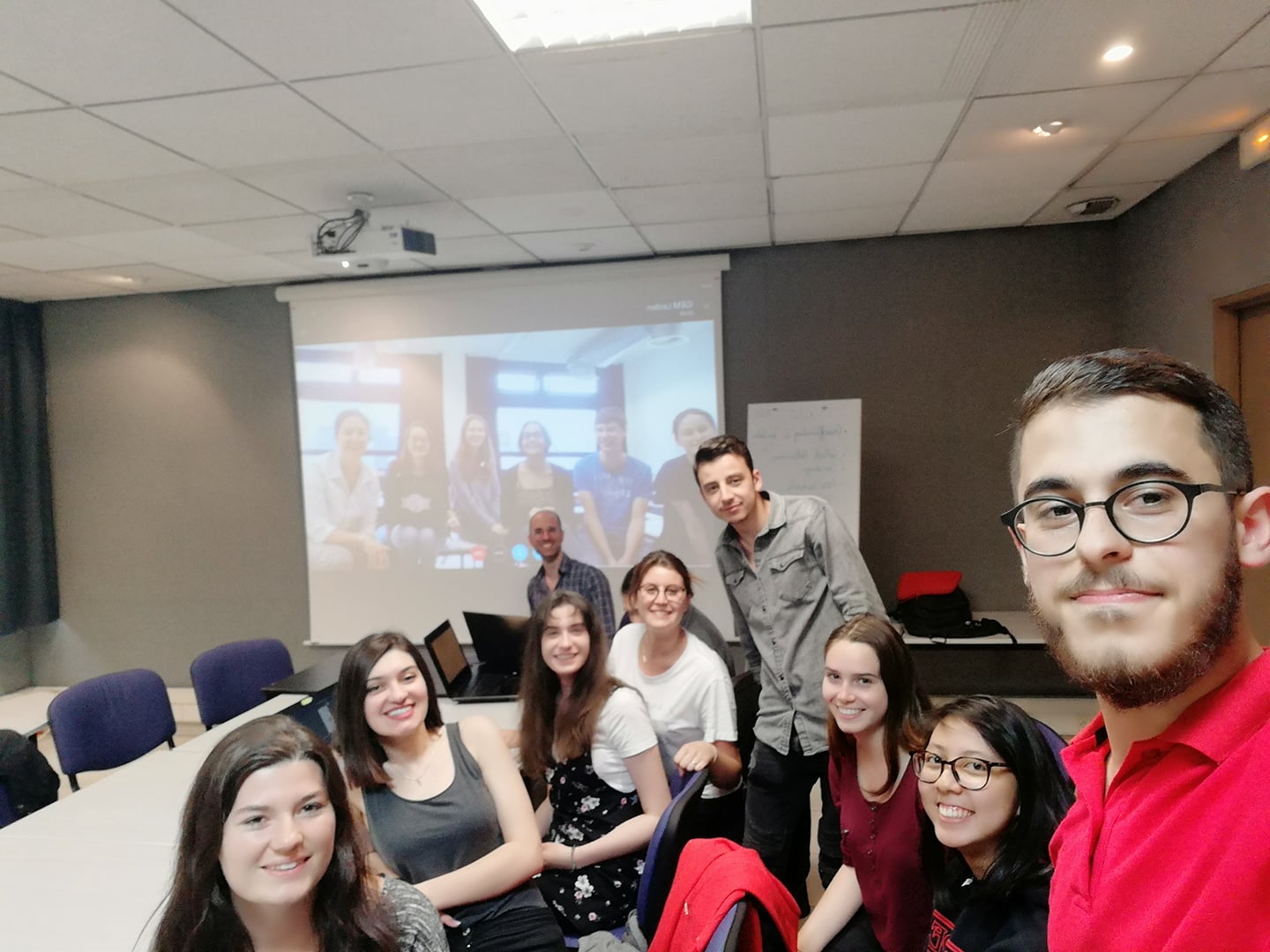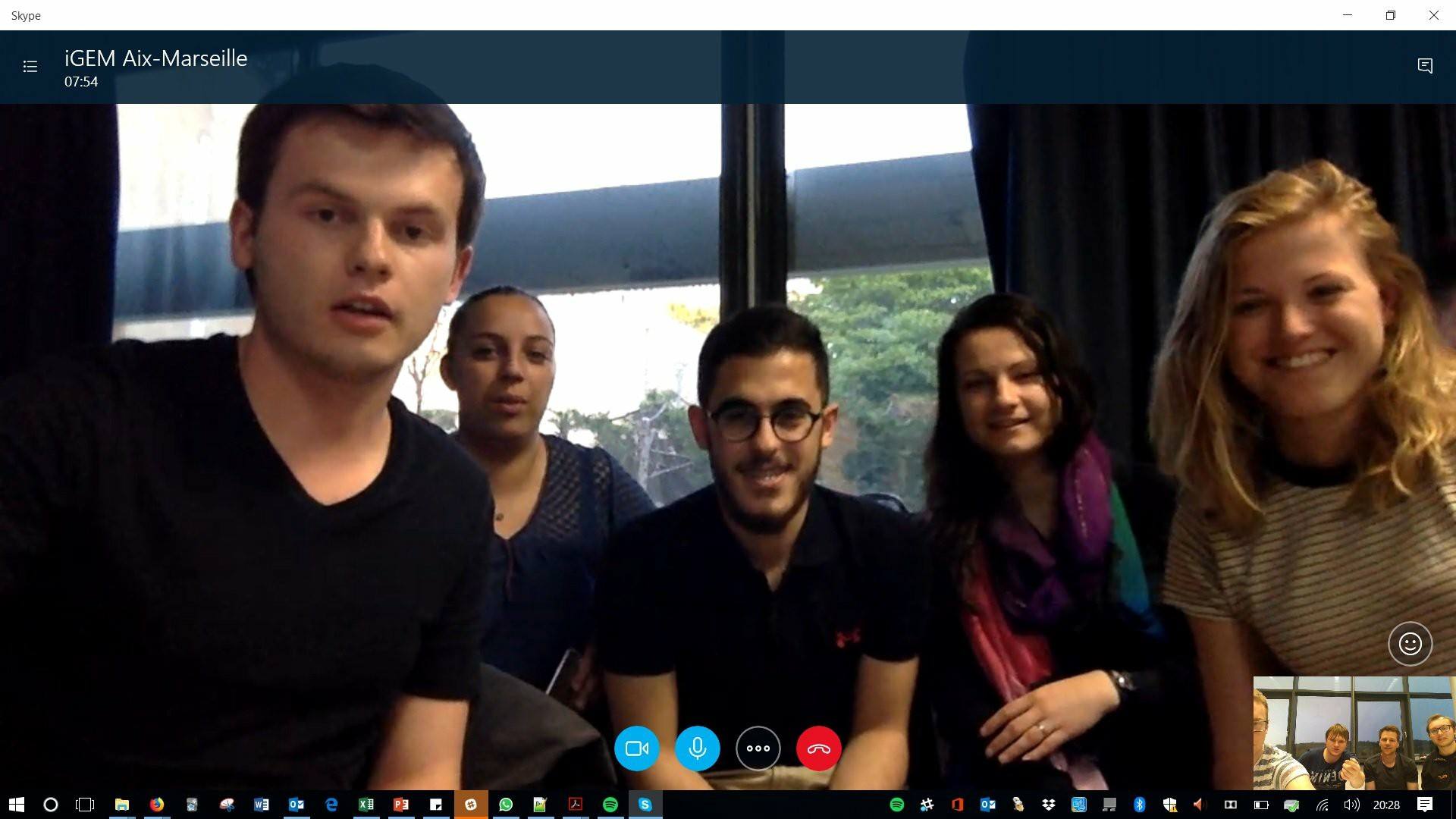| Line 9: | Line 9: | ||
The Leiden team working on the stress of bacteria. This time we were able to discuss the human practices part. We told them all the events we had done and those that remained to come and we were able to discuss the vision of each team on the importance of human practices and how we wanted to integrate it into our project. | The Leiden team working on the stress of bacteria. This time we were able to discuss the human practices part. We told them all the events we had done and those that remained to come and we were able to discuss the vision of each team on the importance of human practices and how we wanted to integrate it into our project. | ||
| + | |||
| + | [[File:T--Aix-Marseille--collab.jpg|600px|thumb|]] | ||
These two teams, although having different operations and demands, each contributed to advance our project. | These two teams, although having different operations and demands, each contributed to advance our project. | ||
The various contacts and exchanges we had with them confirmed the very idea of a universal and collective science. Although each ensures the completion of his project, each team with its different concepts and research can help the different teams, improving and arguing the possible questioning of different work. | The various contacts and exchanges we had with them confirmed the very idea of a universal and collective science. Although each ensures the completion of his project, each team with its different concepts and research can help the different teams, improving and arguing the possible questioning of different work. | ||
| − | |||
| − | |||
Revision as of 22:24, 16 October 2018
Skype Sessions
Despite this important competition within the iGEM itself, access to collaborations between opposing teams has nonetheless served to enrich our notions about our project. We put aside our adversity to allow us to exchange advice, which has been of great mutual benefit to our team. We were able to establish a communication with two teams:
The Bielfield team plans to recycle metals. This team explained to us how their research was going and how their team was involved in the wet lab. This allowed us to reflect on the organization of our team and the role of everyone in our project.
The Leiden team working on the stress of bacteria. This time we were able to discuss the human practices part. We told them all the events we had done and those that remained to come and we were able to discuss the vision of each team on the importance of human practices and how we wanted to integrate it into our project.
These two teams, although having different operations and demands, each contributed to advance our project. The various contacts and exchanges we had with them confirmed the very idea of a universal and collective science. Although each ensures the completion of his project, each team with its different concepts and research can help the different teams, improving and arguing the possible questioning of different work.




